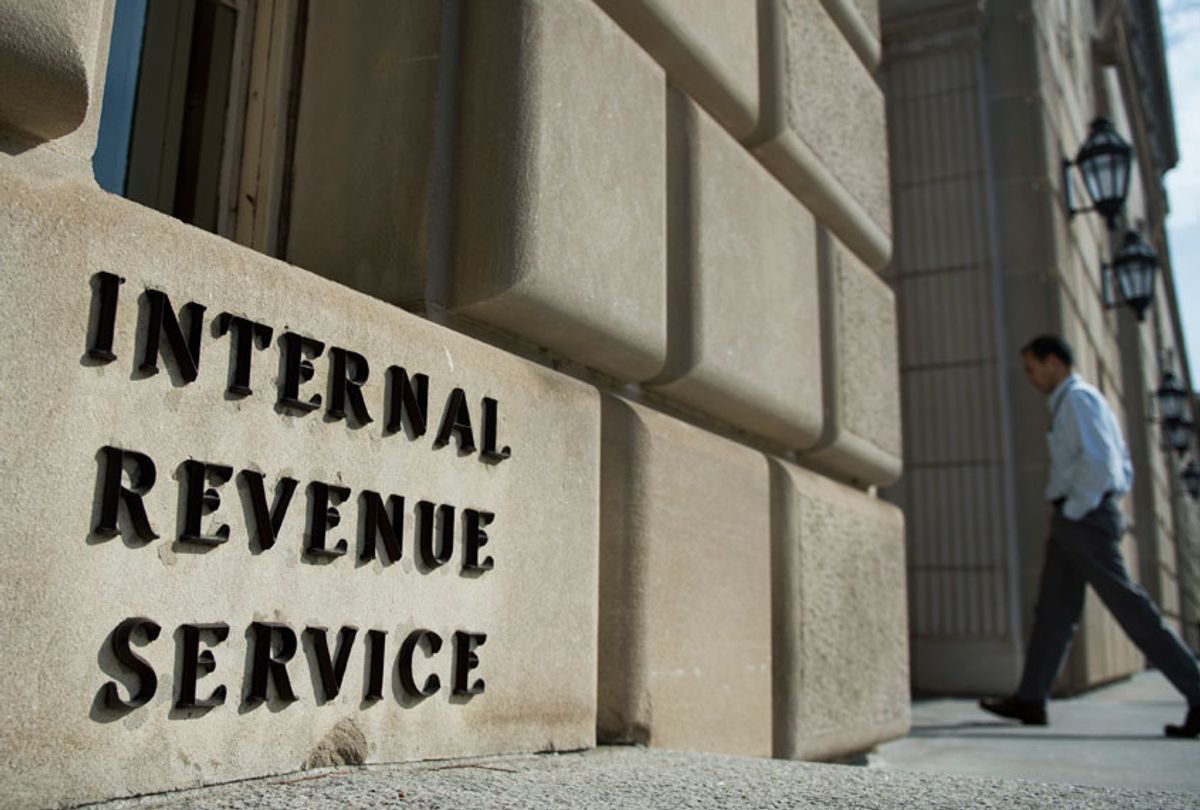Hundreds of IRS employees have gotten permission to skip work during the government shutdown due to financial hardship and more are planning to call in sick as part of a coordinated protest that could delay tax refunds, the Washington Post reports.
Last week, the Trump administration ordered about 30,000 IRS employees back to work by changing their status from furloughed to “essential.” But union officials say that many workers around the country won’t be showing up.
Many of the employees are using a provision in the union contract that allows them to miss work if they suffer a “hardship” during a shutdown. Hundreds of hardship exemptions have already been approved. The workers who process tax refunds are paid $25,800 to $51,000 per year and will miss their second paychecks this coming Monday if the government does not reopen.
“I would say a majority of employees are calling out under hardship,” Gary Karibian, the head of a local union in Andover, Massachusetts, told the Post. “I’m getting reports whole teams are requesting out. One person told me, ‘I’m the only one on my team here.’”
“I’m at the point where I cannot afford to go to work,” Kansas City IRS worker Marissa Scott told the Post. “I cannot afford to fill my gas tank.”
According to the report, up to 75 percent of the 4,000 furloughed IRS workers in Kansas City could qualify for hardship leave.
Scott, a customer service representative, said that without employees like her tax refunds could be delayed for months. Last year, more than $140 billion in tax refunds were paid out by early March.
Other IRS workers are planning to skip work as part of coordinated protests. Protests are expected around the country, said Tony Reardon, president of the National Treasury Employees Union, which represents 150,000 federal employees.
“They are definitely angry that they’re not getting paid, and maybe some of them are angry enough to express their anger this way,” he said. “But these employees live paycheck to paycheck, and they can’t scrape up the dollars to get to work or pay for child care.”
The sick-out protests mirror those of TSA agents, who have been calling in sick en masse since the shutdown began. On Sunday, a record 10 percent of TSA agents failed to show up for work. TSA agents have been forced to work with no pay since the beginning of the shutdown in December.
Guards at federal prisons are also calling in sick in large numbers. The Post reported that the number of prison employees missing work has doubled, resulting in 16-hour shifts for officers and prison secretaries and janitors being forced to patrol parts of prisons.
“All I have is pepper spray and a radio to call for help,” Opal Brown, a secretary at Hazelton Federal Correctional Institution in West Virginia, told the Post.
Meat inspectors for the Department of Agriculture are also calling in sick. According to the Post, so many inspectors are skipping work that the agency ordered a crackdown and has begun requiring a doctor’s note for any absence.
On Tuesday, FBI Agents Association President Thomas O’Connor warned that the “resources available to support the work of FBI agents are currently stretched to the breaking point and are dwindling day by day.”
As a result of the shutdown, he said, the FBI has been unable to issue indictments and grand jury subpoenas in numerous cases, The New York Times reported. One investigation into the gang MS-13 has been derailed because agents could not pay a Spanish-language interpreter to speak to informants. Informants have also gone unpaid and the bureau fears they may lose them.
"To me, that's utterly disgusting that the FBI is in a position to have this happen," O’Connor told CNN Wednesday. "The government should be opened up, the FBI should be fully funded, so that our efforts and our investigations can be completed to the best of our ability and that the FBI agents and support employees who are working every single day can be paid so they can take care of their families, and have less financial insecurity, which we equate with national security in and of itself."

Shares